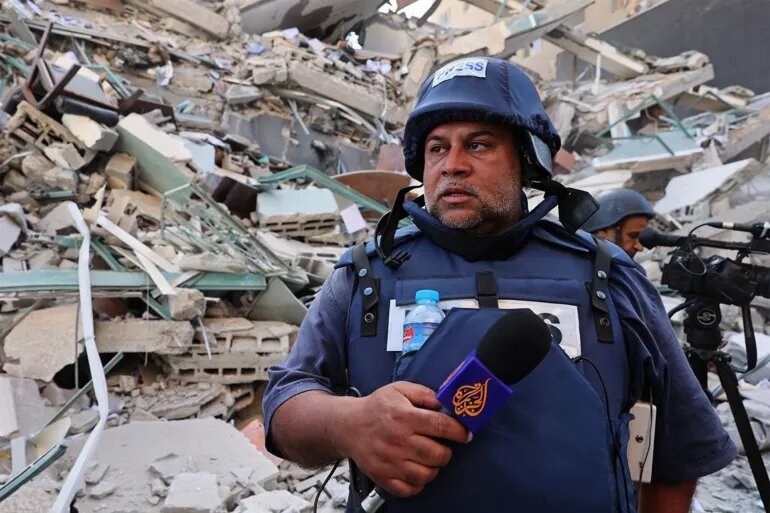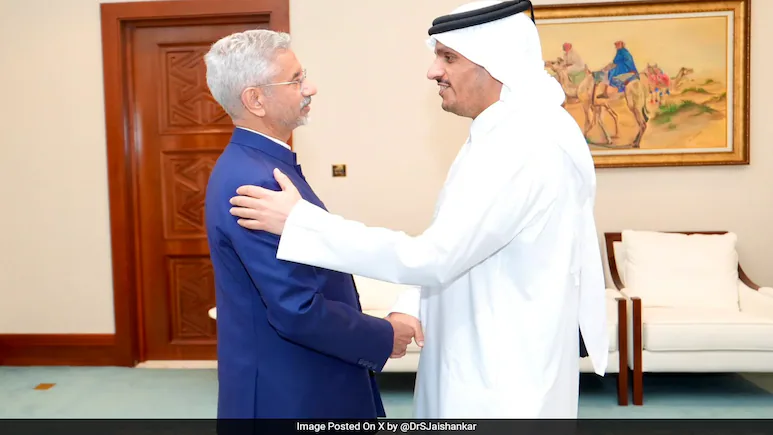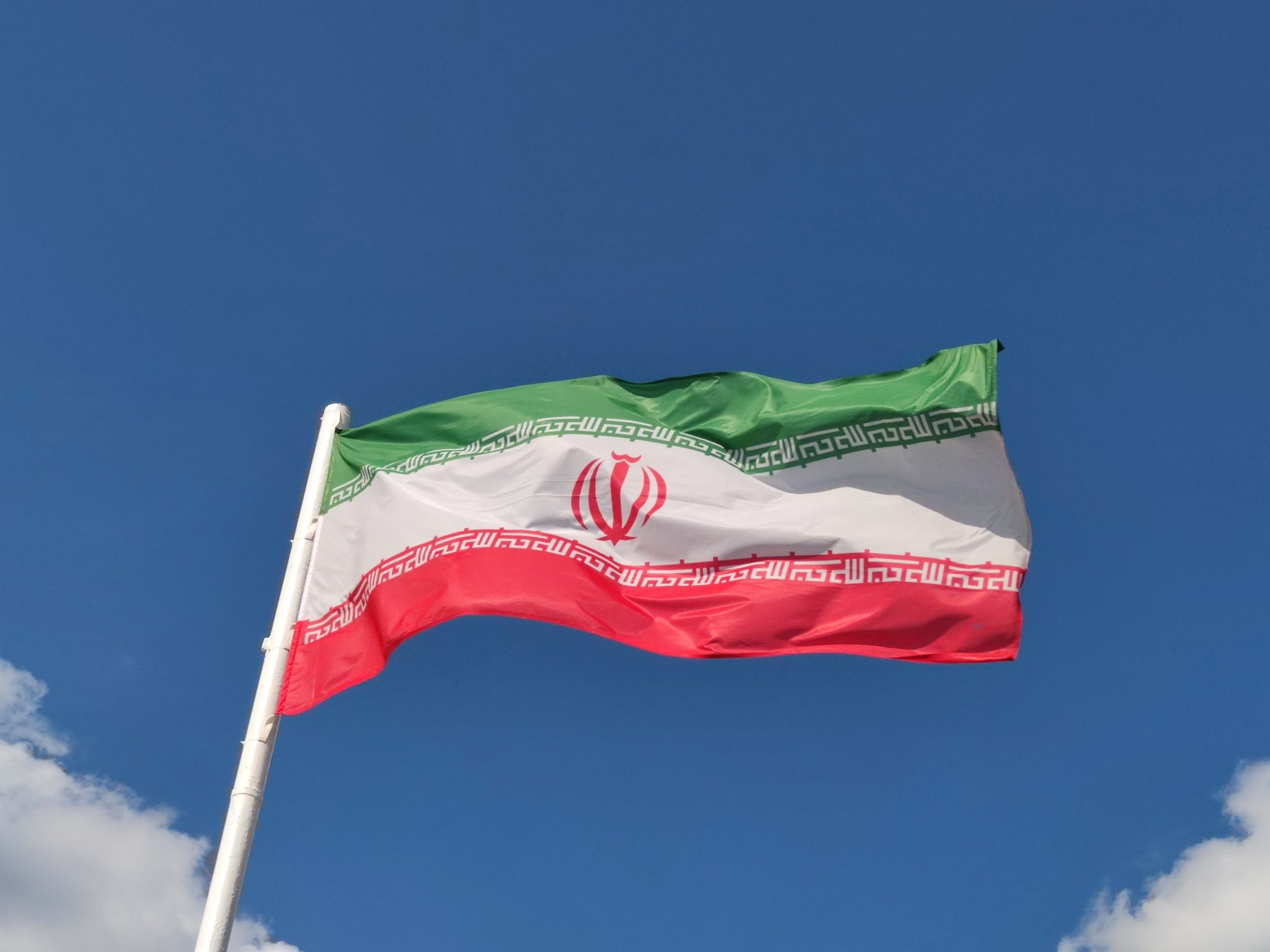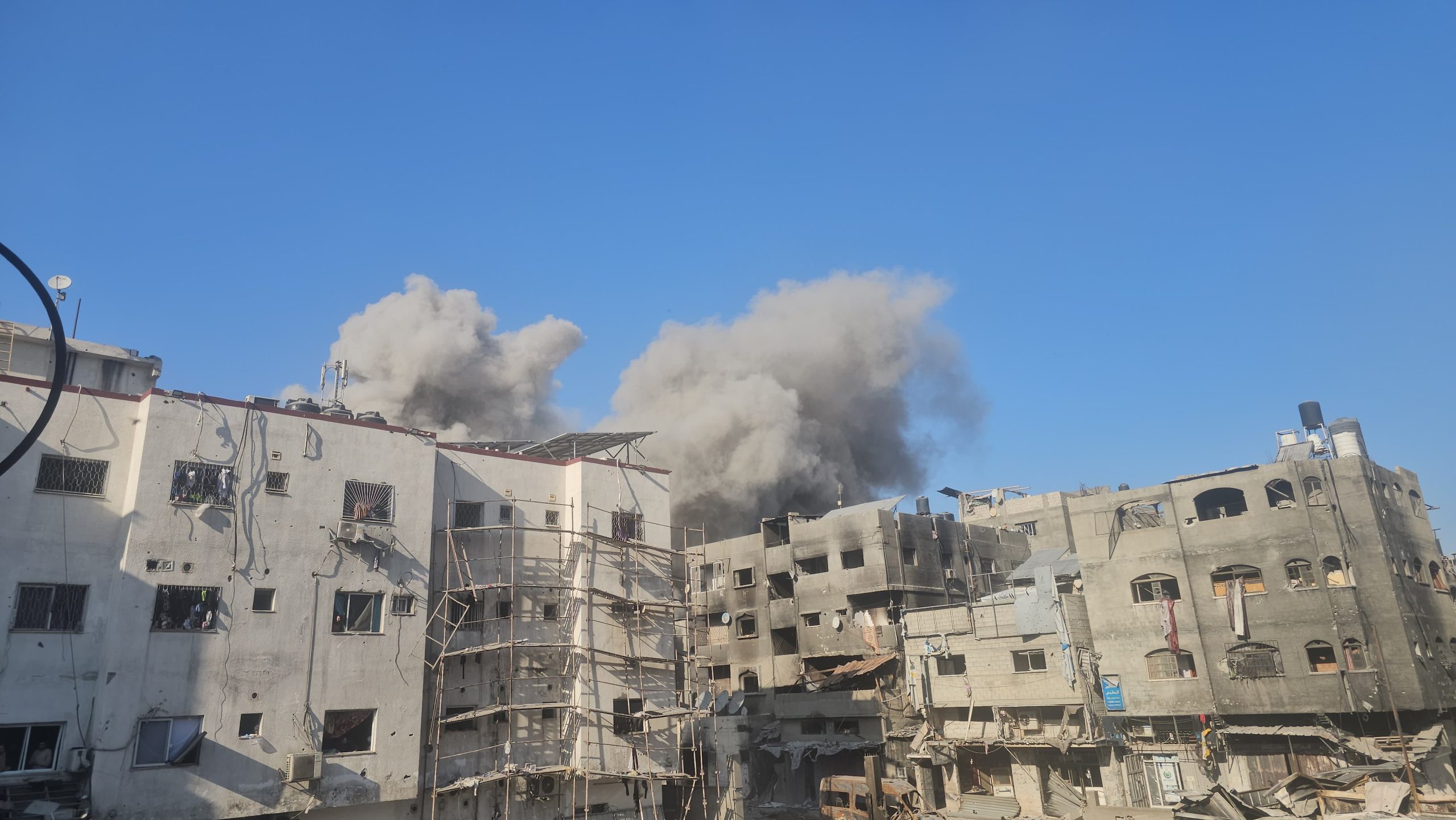Israel had killed the renowned journalist’s family members during an air strike on October 25.
Belgium’s widely circulated magazine, Knack, has named Al Jazeera correspondent and Gaza bureau chief, Wael Dahdouh, as the “journalistic personality” of the year 2023, the Qatar-based broadcaster announced on Wednesday.
Dahdouh, who is Al Jazeera Arabic’s bureau chief in Gaza, received the title in honour of his journalistic coverage of the Israeli war on the besieged enclave since October 7.
Knack dedicated six pages to highlight the renowned journalist’s daily coverage of the aggression despite the Israeli occupation forces killing four of his family members in an air strike in Gaza on October 25.
Israel had killed Dahdouh’s wife, 15-year-old son, seven-year-old daughter, and infant grandson in a strike that targeted a home the family was temporarily using as a shelter in southern Gaza.
Israel had announced the south to be a safe zone before the attack. Dahdouh had found out about the killing of his family members while he was reporting on live television.
“They’re getting revenge through the kids?” Dahdouh said at the time in a viral video as he watched over the body of his dead son, Mahmoud.
Al Jazeera had issued a statement shortly after the attack condemning the targeting of its journalist’s family members.
“The Network strongly condemns the indiscriminate targeting and killing of innocent civilians in Gaza, which has led to the loss of Wael Al-Dahdouh’s family and countless others. We urge the international community to intervene and put an end to these attacks on civilians, thereby safeguarding innocent lives,” the statement said.
Al Jazeera has been subjected to various deliberate attacks by Israel for its detailed and impartial coverage of the violence committed by the occupation forces against Palestinians in Gaza.
On October 19, Israel killed 19 family members of Al Jazeera Arabic’s broadcast engineer, Mohamed Abu Al-Qumsan, during a massacre at the Jabalia camp.
The Israeli attack killed Al-Qumsan’s father, two sisters, eight nephews and nieces, his brother, his brother’s wife and their four children, his sister-in-law, and one uncle.
In a statement at the time, Al Jazeera condemned the “heinous and indiscriminate” killing of Al-Qumsan’s relatives, describing it as an “unforgivable act.”
On Wednesday, Israel killed 22 family members of Al Jazeera Arabic’s correspondent, Moamen Al Sharafi, in an attack on the Jabalia refugee camp in northern Gaza.
“We are prevented from saying goodbye to our loved ones and are deprived of giving them a proper burial,” Al Sharafi told Al Jazeera in a live broadcast moments after the killing of his relatives.
In a statement on Thursday, Al Jazeera said “it will pursue all legal steps to hold accountable all those responsible for this crime.”
Before the war on Gaza, Israel killed prominent Al Jazeera journalist Shireen Abu Akleh on May 11, 2022 as she was covering an Israeli raid in Jenin. The occupation forces also attacked pallbearers in Palestine as they were carrying Abu Akleh’s coffin.
To date, Israel has not been held accountable for its crime, despite numerous investigations that had found the Israeli occupation forces to be the sole perpetrators of the killing. Some of those investigations included ones by the United Nations, Amnesty International, and CNN.
On October 18, Israeli attorney general reportedly approved a ban on Al Jazeera’s local bureau before it backtracked on its decision the following month over Qatar’s key role in mediating the release of captives from Hamas in Gaza.
Qatar and Egypt mediated a week-long truce between November 24 until December 1 that led to the release of at least 110 Israeli and foreign captives from Gaza, according to a Doha News tally.
As part of the deal, Israel released 240 Palestinian women and children from Israeli prisons.
“Deadliest month for journalists”
The Israeli killing of journalists has been on the rise since the beginning of the war on Gaza on October 7.
In a statement on Wednesday, the Committee to Protect Journalists said the war led to the deadliest month [October-November] for journalists” since it began gathering data in 1992.
The data gathered by CPJ found that 63 journalists in Palestine, Israel, and Lebanon have been killed as of December 6. Out of the total figure of press casualties, 56 are Palestinian, three are Lebanese, and four are Israeli.
October 7 was the deadliest day for the press, where six journalists were killed, CPJ said. The second-deadliest day was November 18, where five journalists were killed.
“Journalists in Gaza face particularly high risks as they try to cover the conflict during the Israeli ground assault, including devastating Israeli airstrikes, disrupted communications, supply shortages and extensive power outages,” CPJ said on Wednesday.
Israel has also intensified its attacks on the press in the south of Lebanon.
Israel had killed Reuters videographer, Issam Abdallah, on October 13 and severely injured six other international press members, including Al Jazeera’s, during their coverage of the Israel-Hezbollah cross border attacks in Alma al-Chaab in the Tyre governorate, southern Lebanon.
Another Israeli air strike on November 21 then killed Al Mayadeen’s correspondent, Farah Omar, alongside cameraman Rabih Me’mari in Tayr Harfa, South Lebanon,
On Thursday, an Amnesty International investigation into the first incident found that the Israeli occupation forces knowingly targeted the seven-member press crew.
The watchdog made the conclusion after verifying over 100 videos and photographs, analysed weapons fragments from the site, and interviewed nine witnesses from the time of the attack.
“Those responsible for Issam Abdallah’s unlawful killing and the injuring of six other journalists must be held accountable. No journalist should ever be targeted or killed simply for carrying out their work. Israel must not be allowed to kill and attack journalists with impunity,” Aya Majzoub, Amnesty International’s Deputy Regional Director for the Middle East and North Africa, said today while announcing the probe’s outcomes.
The findings echoed a Reporters Without Borders (RSF) investigation on October 29, which found Israel deliberately targeted the slain Reuters journalist and the other six press members.
Al Jazeera’s correspondent Carmen Joukhadar—who was among the journalists on site—had told RSF that an Israeli helicopter was already hovering over the area and could clearly spot the press crew long before the bombing.
“According to their testimonies, an Israeli helicopter flew over them before a missile fell next to their car – of the same model as the one bombed on 13 October – also bearing the word ‘press’,” RSF said.







